In many (if not most) Western diets, fermented foods aren't very prevalent, and that’s something that should change! Pickling, fermenting, and culturing add beneficial enzymes to foods, and enhance flavors and nutritional. To familiarize yourself with the world of fermented food, here’s a Q & A with Michelle Schoffro Cook, author of The Cultured Cook: Delicious Fermented Foods with Probiotics to Knock Out Inflammation, Boost Gut Health, Lose Weight & Extend Your Life. You’ll learn about the benefits of fermented foods, and be inspired to make them in your own kitchen with the expert guidance in her new book.
What got you into experimenting with fermented foods?
I’m an avid cook and recipe developer with a huge passion for delicious, healthy foods. I first started experimenting with fermented foods when I was 19 and exploring various cultures’ traditional recipes that could give my health a boost.
What are “superfoods” and how does fermentation play a role?
While we’ve come to think of superfoods as exotic fruits or vegetables from faraway lands, the reality is that a superfood is any food that is a powerhouse of nutrition. Any common food can be transformed into a superfood through fermentation, because not only does doing so make its own nutrients more available and absorbable, it also dramatically increases the probiotic content of the foods, making them healthier than many of the top superfoods.
What are some of the amazing health benefits of fermented foods?
Fermented foods have been found to boost most aspects of our health, from immunity and resistance against superbugs, to fighting arthritis and cancer. Great health begins in the gut and eating more fermented foods is the key to great gut health, and therefore overall health.
Isn’t eating yogurt every day enough? Why do we need a variety of fermented foods in our diet?
Eating yogurt introduces two to three strains of beneficial bacteria into our gut but some other foods have been found to contain almost 1,000 different strains to help boost our health. Additionally, other foods like sauerkraut, kimchi, fermented pickles, and cultured vegan cheeses actually contain the prebiotics needed to ensure the viability of the probiotics in these foods. Yogurt contains few prebiotics that act as food for the beneficial cultures.
The fermentation process sounds intimidating. Can I really do this process easily, in my own home and do I have to buy a bunch of expensive utensils and containers to get started?
You don’t need to buy anything to get started. Even if you have a mason jar, you can ferment foods. Of course, once you get hooked on fermented foods you may wish to invest in larger crocks so you can make them in big batches, but that isn’t necessary. If you have some salt and water, you can ferment almost any food.
Can you explain the difference between pasteurization and fermentation? Why are store-bought pickles pasteurized?
Most of the pickles available in the grocery store were never fermented and simply made by letting them sit in white vinegar. Additionally, they are heated to high temperatures—pasteurized—to kill all microbes during the bottling process. Fermented pickles are made using traditional food preservation techniques that add flavor and probiotics. They have a better depth of flavor and are much healthier than their store-bought, white vinegar, pasteurized counterparts, which offer little to no health benefits.
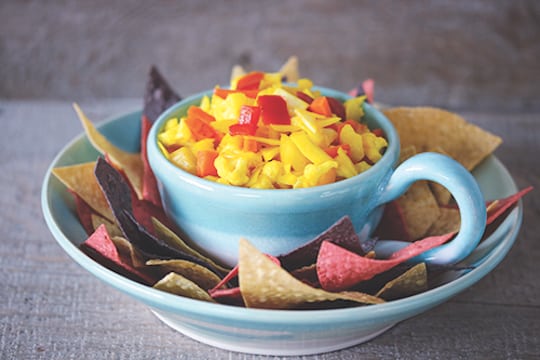
Can you explain the difference between “good” and “bad” bacteria in foods?
Harmful bacteria in foods are those that can cause food poisoning and illness whereas good bacteria—probiotics—boost gut health and overall health.
What is the gut’s role in keeping our immune system healthy?
More and more research shows that approximately 70% of our immune system is found in the gut so we need to address gut health to restore or build healthy immunity. The best way to build both gut health and immunity is to add fermented foods to your diet on a daily basis.
How do fermented foods alleviate anxiety?
Chronic gastrointestinal disorders are increasingly being linked to anxiety and depression. Researchers find that beneficial microbes found in fermented foods can reduce the excitability of nerves in the gut that connect through the vagus nerve to the central nervous system, and in doing so, eliminate anxiety. Additionally, probiotics found in fermented foods can reduce the amount of inflammation in the gut which has been cited as a cause of approximately 100 health conditions, including anxiety (along with arthritis, cancer, depression, diabetes, heart disease, obesity, and many other serious health conditions).
What is a microbiome and why is the microbial balance in our gut important?
A microbiome is the community of microorganisms that inhabit our gut, skin, mouth and other parts of our body. It is the total of all of the microbes that make up our bodies. We all have a microbiome and, similar to fingerprints, no two microbiomes are alike. The key to great health is in swaying our microbiome from unhealthy, harmful microbes to beneficial, life-supporting and health-building ones.
What are the side-effects of taking a course of antibiotics and how can we heal our gut with fermented foods after taking them?
Antibiotics indiscriminately kill all bacteria—good or bad—in our bodies as a way to kill infection; however, by killing beneficial bacteria they also leave us vulnerable to disease and infections. So, it is imperative to restore healthy bacteria to our gut during and after a course of antibiotics to limit the damage they do to our short- and long-term health. Otherwise, we become vulnerable to gut inflammation and harmful infections that can increase our risk of inflammation anywhere in our body.
What is the difference between probiotics and prebiotics?
Probiotics are healthy microbes that build our health while prebiotics are the food they need to survive and multiply. It is not enough to get more probiotics we need to give them food to ensure their survival. Fortunately, all of the recipes in my book, The Cultured Cook, contain plentiful amounts of BOTH probiotics and prebiotics.
What’s your favorite recipe from The Cultured Cook?
I tried to create food that was incredibly delicious, which makes it difficult to choose only one food as my favorite, but I would say that the Tzatziki is my favorite savory recipe while the Orange Creamsicle Cheesecake is my favorite sweet recipe.
Michelle Schoffro Cook, PhD, DNM, is an internationally bestselling author whose works include The Cultured Cook and Be Your Own Herbalist. She is a registered nutritionist, a board-certified doctor of natural medicine, one of the world’s most popular natural health bloggers, and a long-time professional recipe developer whose recipes have been featured in Woman’s World, First for Women, Care2.com, and more than a dozen of her books.
She holds advanced degrees in health, nutrition, and orthomolecular nutrition. She has been featured in a variety of publications, including Woman’s World, Health, WebMD, Huffington Post, Natural Solutions, Vegetarian Times, First for Women, and many others. She lives near Vancouver, BC. Visit her online at drmichellecook.


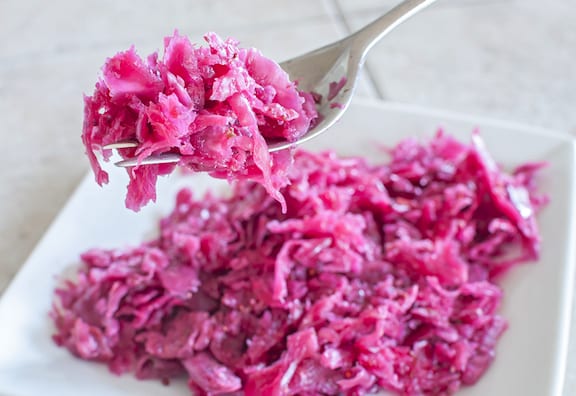

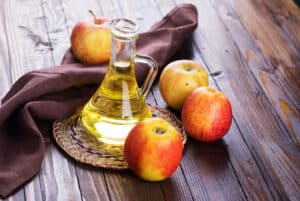
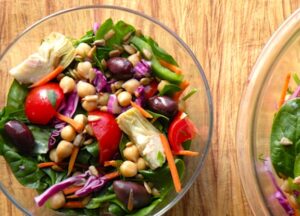
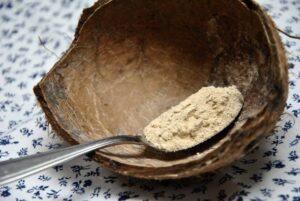
Comments
No Comments